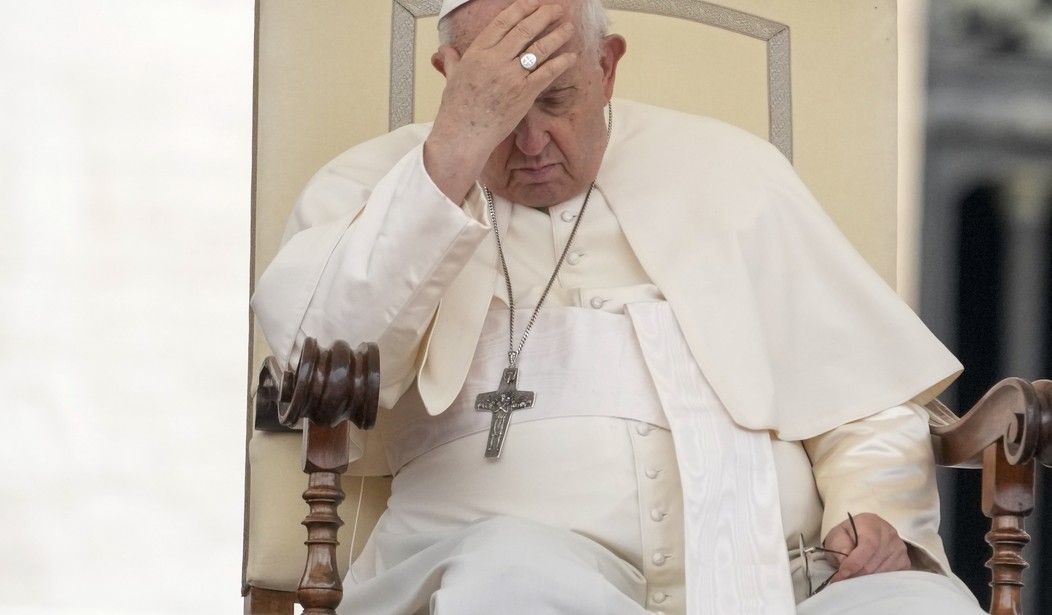The last time a letter from the Pope to American bishops stirred up controversy was when Pope Leo XIII wrote a letter in 1899 officially condemning the heresy of Americanism. This is the heresy that claims the faithful can decide doctrine for themselves and that the American church could more or less go along to get along in a Protestant country by playing down doctrinal differences. Alas, that heresy has never quite died.
Now Pope Francis has written a letter to United States bishops condemning the idea of mass deportation. The fact that NPR is singing the praises of the pope and some on the right are crying foul means that most are putting more emotion than serious thought and prayer into the nuances of the pope's letter. It is a short letter, which you can read in full here. And you can learn more about Americanism from writer Russell Shaw here.
To sum up the current pope's letter in a quick soundbite, mass deportation is indiscriminate, hurting both the bad and the good, and therefore wrong. On the other hand, no country is required to have open borders. Rich countries have a greater responsibility to help migrants from poorer countries. Where the policy needle falls between the extremes of mass deportation and open borders is something that has to be settled by leaders guided by the example of Christ's life and the principle of charity.
In the encyclical Immortale Dei, Pope Leo XIII wrote, "God has apportioned the government of the human race between two powers, the ecclesiastical and the civil, the former set over things divine, the latter over things human. Each is restricted within limits which are perfectly determined and defined in conformity with its own nature and special aim. There is therefore, as it were a circumscribed sphere in which each exercises its functions jure propiro [by one's own right]."
In other words, the church and state have to work together for the common good, each in their own spheres of expertise.
So the pope has laid down some moral markers within which the state can morally operate. Charity should guide leaders in creating policy within those boundaries. The crux of the problem is that Alejandro Mayorkas went from being a board member of the Hebrew Immigrant Aid Society, an open-borders-leaning NGO, to secretary of homeland security, where he turned the United States into the largest open-border NGO in the world.
That extreme of the pendulum has caused an equal and opposite reaction in public policy. Or has it? I think the pope's advisers on this were too quick on the trigger and tone-deaf to Trump. Mass deportations are never going to happen, and everyone, including Trump, knows it. If there are 18 to 25 million illegals and undocumented, as some claim, and if 8,000 are being deported a week, well, you do the math over four years.
Trump is using this threat to a) stop the border stampede and b) encourage self-deportation. Sadly, by not speaking out against the weaponization of the border by the Biden administration, it is hard for the pope to get much of a hearing now when the shoe is on the other foot.
Archbishop Thomas Wenski of Miami translated the pope's statement into plain American English when he said here, "While the ebb and flow of migrants and asylum seekers has been a constant for decades, the apparent ineptness of the Biden administration seemingly precipitated an unprecedented spike in irregular migration." He is diplomatic in calling it ineptness. It was a direct attack on the stability of the country. New York City alone has been spending $7 billion a year to pay welfare for new migrants.
Wenski also cited Vice President Vance for "harsh and intemperate words about the U.S. bishops’ conference." Fair enough. Frustration is high on this issue. Wenski said, "We have never advocated for 'open borders' or that 'bad actors' should be admitted indiscriminately or that wrongdoers of any type be free to roam our streets and endanger our citizens... In other words, border 'walls' should also have 'doors' that would permit the flow of legal immigrants."
Related: Trump and Vance Attend the National Prayer Service for a Good Talking-To
It is perhaps naive of the pope not to realize that jumping in after the horses had left the barn would come across as too little, too late, or partisan. He began his pontificate by explicitly saying that people have to stop viewing the church as a glorified NGO. So the document should not be read as an NGO lobbying effort or in a political light but as an outline of moral principles to be factored into public policy.
As a friend of mine said, “My frustration is partly based on the recognition that many of these migrants come from countries where the church has a major presence. Where's the letter to bishops in those countries telling them to work harder to improve the conditions that lead to emigration?”










Join the conversation as a VIP Member